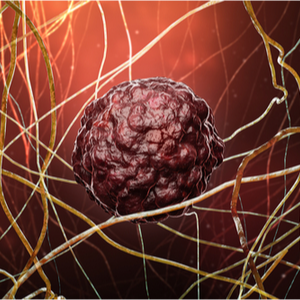
Tumours from the perspective of conventional medicine
Cancer patients often wish for a gentler alternative to the often very stressful conventional forms of therapy, such as chemotherapy. Other patients, on the other hand, whose cancer has already progressed very far, see alternative medicine as their last resort. Conventional and alternative medicine should work closely together. Conventional medicine has succeeded in developing better and better therapies due to its increasing level of research, which promise promising prospects for a cure. Alternative medicine should therefore always be used as a complement to conventional medicine, for example to mitigate the side effects of chemotherapy or radiotherapy.
Complementary versus alternative medicine: A conceptual delimitation
The term alternative medicine can currently only be inadequately distinguished from the word complementary medicine. In general, it is assumed that complementary medicine treatment procedures are used in parallel with conventional medicine. Whereas in alternative medicine there is often no complementary treatment from conventional medicine. There is still very little scientific data on the effectiveness of complementary treatment methods. However, studies show that certain complementary medicine methods can have a positive effect on the side effects of classical cancer therapy.
What methods of complementary medicine are there?
Generally, the treatment methods from complementary medicine can be divided into the four thematic blocks:
- Medical systems: are characterised by their own medical theory of disease and treatment and usually complement orthodox medicine. Medical systems include acupuncture or homeopathy.
- Mind-body procedures: serve to improve self-awareness and self-care. These include meditation or yoga, for example.
- Body therapies: are intended to influence the musculoskeletal system and include, for example, chiropractic and osteopathy as well as sport.
- Biological therapies: are aimed at a healthy diet and include nutrients, various diets or the use of certain medicinal plants.
- Frequency therapies: are aimed at stimulation and pathogens.
For which symptoms can complementary medicine be used?
There are usually no alternative medicine treatment options for cancer. However, complementary treatments can be used for the following symptoms:
- Nausea,
- Diarrhoea,
- Joint and muscle pain,
- Inflammation of the oral mucosa,
- Nerve disorders such as insensitivity (polyneuropathy) or nerve pain,
- Sleep disorders,
- Susceptibility to infections,
- Sweating,
- general weakness and
- Difficulty concentrating
For some cancers, complementary natural therapies can enhance the effectiveness of conventional treatment. Sport and exercise therapies are said to reduce the risk of getting cancer again.
When choosing the respective method, one should not only be guided by the current complaints, but also by the individual situation of the patient. This is because every method that is effective in itself can also cause harm under certain circumstances, especially if, for example, individual substances cause undesired interactions with important cancer drugs.
Nutrition as part of complementary medicine
In advanced cancer, it is essential to avoid weight loss and malnutrition. Patients with liver and bowel cancer in particular may even be able to increase their life expectancy through nutritional approaches. For people undergoing chemotherapy, short-term fasting can help improve tolerance of the medication. After surviving cancer, weight normalisation can reduce the risk of cancer recurrence, especially in overweight patients.
